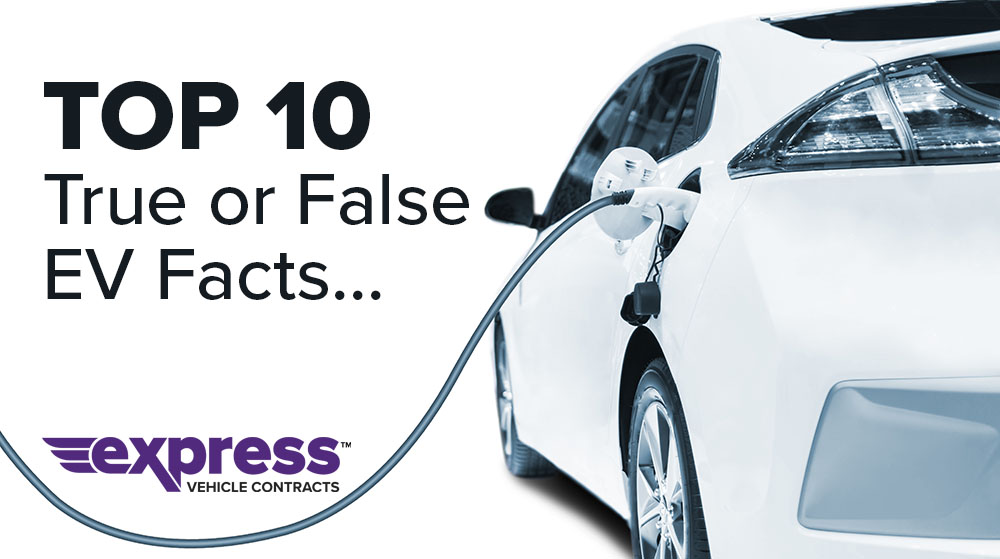
Electric Vehicle Facts
1.) There’s not much choice
Over the last decade, the world of electric vehicles (EVs) has transformed dramatically. Now, with 39 manufacturers offering 197 models in 794 variations, the options are more diverse than ever. Whether you’re looking for a brand-new ride or a pre-loved EV, there's something for every lifestyle - from compact city cars to spacious SUVs. Explore the rapidly expanding universe of EVs and find your perfect match! #TopEVDeals #ElectricVehicles #GreenDriving #SustainableChoices
2.) I can’t charge an EV at home
Approximately 60% of car owners in the U.K. are fortunate to have a driveway, making the installation of a home charging station for electric vehicles (EVs) quite convenient. However, for those without personal charging space, there's no need to worry. The availability of public charging stations is on the rise, ensuring everyone can enjoy the benefits of an EV, with easy access and payment options for charging on the go. #EVCharging #SustainableDriving #ElectricVehicles
3.) Producing EV batteries harms the environment
While it's true that creating the batteries for electric vehicles (EVs) has a larger initial carbon footprint compared to those in petrol or diesel cars (mostly due to mining for required materials), the tide turns quickly once you hit the road in your EV. Studies confirm that after driving 15-20,000 miles, an EV’s total carbon impact becomes more eco-friendly than traditional cars. Plus, powering your EV with renewable energy speeds up this eco-benefit. And, even with energy from non-renewables, EVs will eventually outpace petrol and diesel cars in being green. #EcoFriendlyDriving #SustainableChoices
4.) It costs more to charge an EV fully than fill a petrol tank.
Charging your electric vehicle (EV) at home could mean super low running costs - think 8p per mile, or even less than 2p with a smart energy tariff! Compared to petrol or diesel cars that run about 14-20p per mile, the savings are huge. But remember, with today’s high energy prices, public charging spots could bump up the cost, making it similar to traditional fuel prices. #ElectricVehicles #SaveOnFuel
5.) You’ll queue for hours at public charging locations.
It's a common myth that all charging stations are always packed. Truth is, with a bit of planning or using a map app, you can easily find quieter spots not too far away. Plus, did you know you can use some apps to search for stations with multiple chargers? The more plugs available, the better your chances of avoiding the wait. And if there's a short line, don't worry - it's usually quicker than you think, much like waiting for your turn at the gas station. #EVCharging #TravelTips
6.) EV tyres wear out quicker due to the weight of the vehicle
Did you know the longevity of your tires hinges on various aspects, such as the tire's quality, its pressure, and your driving habits? Interestingly, there's no proof that electric vehicle (EV) tires need replacing sooner than those on traditional cars. In fact, it's common for EV enthusiasts to see their front tires zoom past 20,000 miles, with rear ones cruising beyond 40,000 miles! Driving gently to boost your EV’s range might just be the secret to giving your tires a longer life. #EVTips #TireLongevity
7.) I’ll need to upgrade the electrics at home to install a home charger.
Good news for electric vehicle owners! If your home's electrical system is up to snuff, you're all set to install an EV charger without any major updates. Most chargers work seamlessly on a standard single-phase power supply, providing around 7kW of juice - perfect for charging your ride from zero to fully powered while you sleep. #ElectricVehicle #EcoFriendlyLiving #HomeCharging Simplify your life and step into the future of driving!
8). It takes a long time to charge an EV?
The duration it takes to charge an electric vehicle varies based on the charging infrastructure in use. The fastest currently available are ultra-rapid chargers, with capacities ranging from 100Kw to 350Kw.
Typically located along major highways and at service stations, these chargers can replenish an EV's battery to 80% in approximately 20 minutes, depending on the specific model of the vehicle.
For those not in a rush, fast chargers offer a middle ground, with outputs of either 7Kw or 22Kw. Ideal for residential or workplace locations, they represent the preferred option for daily charging needs.
Conversely, the most patient of charging methods involves utilizing a standard three-pin plug, categorizing these as the slowest option. Full charging cycles can span between 6 to 12 hours, making it suitable for overnight energy refills.
9.) There aren't enough public EV charging points
Despite concerns, the UK is rapidly powering up for electric vehicles!
From 2019 to 2023, public EV charging stations nearly tripled, hitting approximately 72,500 chargers at 26,800 spots.
That's over 3x the number of traditional petrol stations! With a 40% jump just in the last year, running low on charge is becoming a thing of the past.
10.) Can electric cars drive through water?
Unlike their gas-powered cousins, electric vehicles are less prone to water woes thanks to their sealed batteries. However, it's smart to steer clear of deep floods – safety first, whether you're driving electric or not! #ElectricCars #DriveSafe
Looking for an amazing EV deal? TOP EV DEALS..










